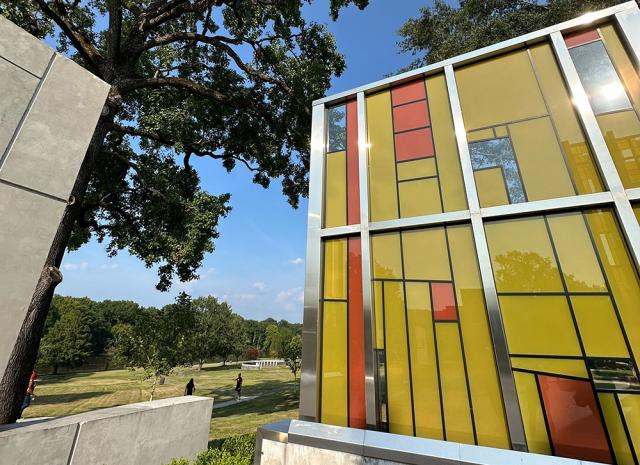Introduction
The Ways of Knowing Symposia continued on in August as roughly 45 community representatives and partners from around the country gathered in Greenville, North Carolina for the Transforming Community-Led Health Research Symposium. With the goal of engaging in heartfelt conversations, primarily among community members, along with with a handful of academic partners and local government and philanthropic representatives, about overcoming the systemic barriers to developing and sustaining authentic and meaningful community-led health research partnerships. We embarked on three days of relationship-building, experiential learning, and deep discussion about expanding and transforming the “health science knowledge system” to operate in service of community betterment versus exploiting community resources.
Together, we enjoyed North Carolina hospitality as we dined on local cuisine and visited a rural farm, community center, and university. We listened as local elected officials, advocates, and grass-roots leaders shared their experiences and insights, and engaged in intimate group activities to highlight different “ways of knowing” like weaving, dancing, and painting.
Key Discussions
By the second day, some consistent themes were already starting to emerge, some of which resonated with the conversation at the Indigenous Ways of Knowing Symposium, like the concepts of healing and connection. The need for institutions to rebuild trust with the people and communities they were intended to serve was also a prominent topic of conversation, with people stressing the importance of authentic relationships, respect, and reciprocity. These are all relatively common principles of participatory processes.
But as we turned to focus more squarely on research some deeper concepts came to light. For example, the occurrence of cultural disenfranchisement, which has led to community destabilization. This idea led to the suggestion that academic institutions, government entities, and funders needed to practice cultural responsibility, which was described as distinct but perhaps emanating from cultural humility. Beyond thinking about equitable research partnerships, participants at the symposium stressed the importance of taking a step even further back to consider whether research was needed to begin with. The point was not that research is never valuable, but research was framed as one tool for change among the many that we have at our disposal to create the conditions in which we want to live. Interrogating whether research from an institutional health science perspective as the major authority to describe communities became a point of unification at the symposium.
There was a recognition that academic researchers are navigating complex systems themselves, with their livelihoods tied to certain expectations within the academy (our next symposium will delve more deeply into this web). There was also an acknowledgement that, despite the challenges that sometimes arise when engaging with large institutions, there are individuals within them that are genuinely working toward institutional change in service of community interests. At the same time, this position within the institution comes with a certain aspect of power and privilege that can be difficult to dissociate from, making it all the more important to hold true the purpose of research to always be in service of the betterment of society. There was general consensus that the only way a study could meet this standard was by emerging from the efforts, knowledge, and priorities within communities. Research questions and studies should not be determined and designed within the ivory towers of institutes of higher education, they must build on the knowledge of community members, not seek to replicate that knowledge via the scientific method.
Next Steps
Our time together was rich and rewarding, and yet we walked away with a sense that we have only just begun to scratch the surface. It was never our expectation that we would resolve the issues at hand within the course of one symposium (or even the entire series). We liken the symposia this year to town hall meetings - gathering input and understanding priorities - with the expectation that these conversations will result in the development of an action plan, which will ultimately lead to concerted and organized efforts to transform the health science knowledge system. The dialogue in North Carolina contributed meaningful input into an action plan, with a focus both on the overarching vision and strategy, as well as concrete tactics for eliciting change.
Many participants are continuing to meet virtually to continue the conversations that began at the symposium and keep building momentum. The invitation to these meetings is open. You can learn more and access a link to join here.
We also invite you to join us (virtually or in person) to engage in the ongoing refinement of the action plan at the culminating symposium in conjunction with the Facing Race conference in St. Louis, MO, on November 20th.
